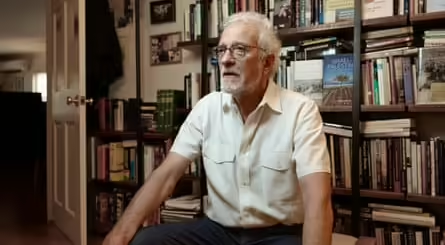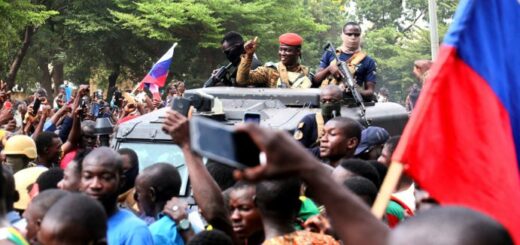Bangladesh – A Nation at Crossroads
Begin augustus 2024 zag premier Sheikh Hasina van de Awami League zich verplicht om het land te ontvluchten na bloedige rellen die sinds juni haar land in zijn greep hadden vanwege de geplande herinvoering van voorkeursquota bij overheidsfuncties. Socioloog Bernard D’Sami legt uit waar de onvrede – onder meer aan de universiteit van de hoofdstad Dhaka – vandaan komt.
Bangladesh has been in turmoil since early June 2024. The main cause of the unrest was the reservation of one-third of government jobs for freedom fighters (nvdr: hiermee worden in Bangladesh de strijders bedoeld die tussen 1971 en 1975 vochten voor de onafhankelijkheid van Bangladesh, dat tot 1971 nog als Oost-Pakistan een deel van Pakistan was, er vielen daarbij miljoenen doden), which sparked widespread protests.
Bangladesh, a country with 170 million people, faces significant challenges, with unemployment being a major concern. The nation is experiencing a ‘youth bulge’, with nearly 400,000 graduates entering the job market each year, while only 3,000 government positions are available. This is far below the expectations of students seeking government employment.
The protest movement against the reservation policy began in June 2024, led by students. On 19th July, clashes erupted between supporters of Prime Minister Hasina and the student demonstrators, resulting in violent confrontations.
The authorities detained three key leaders of the movement. Dhaka University became the epicentre of the protest. On 21st July, Bangladesh’s Supreme Court struck down the reservation policy implemented by the Hasina government, ruling that 93 percent of state jobs should be open to competition.

The Court announced that 93 percent of government positions would be allocated based on merit, with only 5 percent reserved for freedom fighters and their descendants. Additionally, 1 percent of the jobs would be reserved for tribal communities, differently abled individuals, and sexual minorities, respectively.
The Student Federation of Bangladesh and the Bangladesh Jatiotabadi Chatra Dal were among the organisations supporting the campaign, alongside the Workers’ Party of Bangladesh (WPB). The movement also received backing from the country’s main opposition party, the Bangladesh National Party (BNP), led by Khaleda Zia, the primary opponent of Prime Minister Sheikh Hasina.
On 5th August 2024, as the movement intensified and more agitators were killed, Bangladesh’s Prime Minister Sheikh Hasina resigned and fled Dhaka as protests in the capital escalated into a broader movement against her and her political party, the Awami League.
Protestors made Hasina’s resignation their single-point demand. The Awami League also believes that the banned Jamaat-e-Islami is behind the agitation. Shortly after her departure to India, her residence in Dhaka was stormed.

Bangladesh Army Chief General Waker-Uz-Zaman announced the formation of an interim government. Hasina has been granted political asylum in India. Although India denied asylum to some individuals while granting it to others, its asylum policy has come under scrutiny.
The student protesters responsible for Hasina’s ouster brought in Muhammad Yunus, a Nobel Laureate and microfinance pioneer. How long the interim government will remain in power and when they will conduct a general election allowing a multi-party system to participate is a million-dollar question. No one has the answer.
Since its independence and creation in 1971, Bangladesh has witnessed 29 military coups, from the initial uprising in August 1975 to the most recent attempt in December 2011.

In January 2024, the opposition parties boycotted the general elections called by the government. Over the past 16 years, Sheikh Hasina has established a strong grip on the government. Democracy has been strangled through the curbing of press freedom, extrajudicial killings, torture, and the disappearance of political opponents.
Bangladesh was once hailed as an economic miracle. Its textiles and garments industry brought the country significant recognition and success. Global clothing retailers like Zara and H&M were major buyers, creating a job market that rescued many out of poverty and transformed living standards.
Many women worked in the textile and other informal sectors, while men typically went to Gulf countries to earn a living. Ready-made garments, jute products, fish and prawns, and leather goods were among Bangladesh’s major exports, with exports totaling 47.47 billion dollars.
Garment exports accounted for more than 80 percent of the country’s earnings. Bangladesh also received 23.91 billion dollars in remittances from migrant workers. Like other South Asian countries, Bangladesh is a labour-exporting nation; in 2023, approximately 1.3 million Bangladeshi citizens left the country to work abroad.

Bangladesh also has a strong civil society, with organisations working in various fields. However, over the last sixteen years, the space for these organisations to operate and protest has been shrinking, and surveillance of democratic institutions has increased.
Although Bangladesh’s economy improved through its textile exports, political corruption, loan fraud, and money laundering by members of the ruling party have turned the country’s ‘economic miracle’ into an ‘economic catastrophe’.

Bangladesh’s descent into anarchy will also worsen the lives of 943,000 Rohingya refugees in Cox’s Bazar and 35,000 on Bhasan Char Island (a floating island). There is a growing fear that Bangladesh could become another ‘failed state’ in South Asia, adding to the list of countries in the region facing this perilous predicament.
Bernard D’Sami
Dr. Bernard D’Sami is als Senior Fellow verbonden aan het LISSTAR, Loyola College (Autonomous), Chennai, India.
Lees verder (inhoud september 2024)




